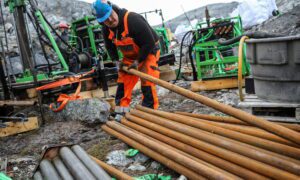The United Kingdom’s manufacturing and engineering sectors are experiencing a remarkable transformation. After decades of decline and outsourcing, these industries are witnessing unprecedented growth, driven by technological innovation, strategic government support, and a renewed focus on domestic production capabilities.
Recent data from the Office for National Statistics reveals that UK manufacturing output has reached its highest levels since 2008, with engineering services contributing over £27 billion annually to the national economy. This resurgence represents more than statistical recovery—it signals a fundamental shift in how British industry approaches modern challenges.
The catalyst for this renaissance stems from multiple converging factors: Brexit-induced supply chain realignments, pandemic-driven reshoring initiatives, and the urgent need for sustainable manufacturing practices. Companies across the nation are discovering that local production offers advantages previously overlooked in the pursuit of cost reduction.
Advanced Manufacturing Technologies Lead the Charge
The modern UK manufacturing landscape bears little resemblance to its industrial heritage. Today’s facilities integrate cutting-edge technologies that enhance productivity while reducing environmental impact. Artificial intelligence, robotics, and Internet of Things (IoT) systems have revolutionized traditional production methods.
Aerospace manufacturing exemplifies this transformation. Companies like Rolls-Royce have invested heavily in digital twin technology, allowing engineers to simulate and optimize jet engine performance before physical prototypes are built. This approach reduces development time by 30% while improving final product quality.
Automotive manufacturing has similarly embraced innovation. Electric vehicle production facilities across the Midlands employ advanced battery manufacturing techniques that position the UK as a global leader in clean transportation technology. These investments demonstrate how traditional industries can adapt to emerging market demands.
Precision Engineering Excellence
UK engineering firms have carved out specialized niches in high-value precision manufacturing. From medical device components to renewable energy infrastructure, British engineers deliver solutions that demand exceptional accuracy and reliability.
The offshore wind sector particularly benefits from UK engineering expertise. Turbine manufacturers require components that withstand harsh marine environments for decades. British engineering companies have developed specialized alloys, coatings, and manufacturing processes that meet these demanding specifications.
Strategic Government Investment and Support
The UK government has recognized manufacturing and engineering as critical sectors for economic growth. The Industrial Strategy Challenge Fund has allocated £2.6 billion toward manufacturing innovation, supporting research and development initiatives that strengthen competitive positioning.
Regional development programs have created manufacturing clusters throughout England, Scotland, Wales, and Northern Ireland. These clusters foster collaboration between established companies, emerging startups, and academic institutions. The result is an ecosystem that accelerates innovation while preserving traditional manufacturing knowledge.
Tax incentives for capital investment have encouraged companies to modernize production facilities. The Annual Investment Allowance provides immediate tax relief for qualifying expenditure, making advanced manufacturing equipment more accessible to businesses of all sizes.
Skills Development and Workforce Training
Addressing the skills gap has become a priority for both government and industry leaders. Apprenticeship programs combine theoretical learning with practical experience, ensuring workers possess relevant capabilities for modern manufacturing environments.
Universities have expanded engineering programs to meet growing demand. Partnerships between academic institutions and manufacturing companies provide students with real-world project experience while addressing specific industry challenges.
Export Success and Global Competitiveness
UK manufacturing exports have demonstrated remarkable resilience and growth. Pharmaceutical manufacturing, in particular, has become a significant export sector. British companies supply active pharmaceutical ingredients and finished products to markets worldwide, leveraging stringent quality standards that command premium pricing.
Chemical manufacturing represents another export success story. Specialized chemical products for agriculture, electronics, and industrial applications generate substantial foreign currency earnings while supporting domestic innovation.
The aerospace sector continues to punch above its weight in global markets. UK companies supply components for commercial aircraft, military systems, and space applications. This expertise builds upon decades of engineering excellence while adapting to contemporary requirements.
Sustainable Manufacturing Practices
Environmental considerations have become integral to UK manufacturing strategy. Companies are implementing circular economy principles that minimize waste while maximizing resource efficiency. This approach reduces operational costs while meeting increasingly stringent environmental regulations.
Renewable energy integration has transformed manufacturing operations. Solar panels, wind turbines, and battery storage systems enable production facilities to reduce carbon footprints while achieving energy cost savings. Some manufacturers have achieved carbon neutrality through these investments.
Regional Manufacturing Hubs Drive Innovation
Different regions of the UK have developed specialized manufacturing strengths. The Northwest focuses on advanced materials and chemicals. The Midlands maintains its automotive heritage while expanding into electric vehicle production. Scotland excels in renewable energy manufacturing and food processing.
These regional clusters create competitive advantages through knowledge sharing, supplier networks, and specialized workforce development. Companies benefit from proximity to related businesses, universities, and research institutions.
Northern England has emerged as a powerhouse for advanced manufacturing, with particular strength in steel production, aerospace components, and industrial machinery. Investment in transport infrastructure has improved connectivity between these manufacturing centers and international markets.
Technology Integration and Digital Transformation
Industry 4.0 principles are reshaping UK manufacturing operations. Smart factories employ sensors, data analytics, and machine learning algorithms to optimize production processes in real-time. This technology reduces waste, improves quality, and increases overall equipment effectiveness.
Predictive maintenance systems prevent costly equipment failures while maximizing production uptime. By analyzing vibration patterns, temperature variations, and other operational parameters, manufacturers can schedule maintenance activities during planned downtime periods.
Supply chain digitization has improved inventory management and reduced working capital requirements. Real-time visibility into supplier performance, inventory levels, and demand forecasts enables more responsive and efficient operations.
The Future of British Manufacturing Excellence
UK manufacturing & engineering are on a trajectory of continued growth and innovation, driven by emerging technologies such as quantum computing, advanced materials science, and biotechnology that are creating new opportunities for British companies to lead in global markets.
Investment in research and development remains crucial for maintaining competitive advantages. Companies that embrace innovation while building upon traditional strengths will be best positioned for long-term success.
The combination of technological capability, skilled workforce, strategic location, and government support creates a compelling proposition for manufacturers considering UK operations. This foundation supports both established companies and emerging businesses seeking to capitalize on manufacturing opportunities.
As global supply chains continue evolving, UK manufacturing and engineering sectors are well-positioned to meet domestic and international demand. The resilience demonstrated during recent challenges proves that British industry can adapt, innovate, and thrive in an increasingly complex global economy.





























